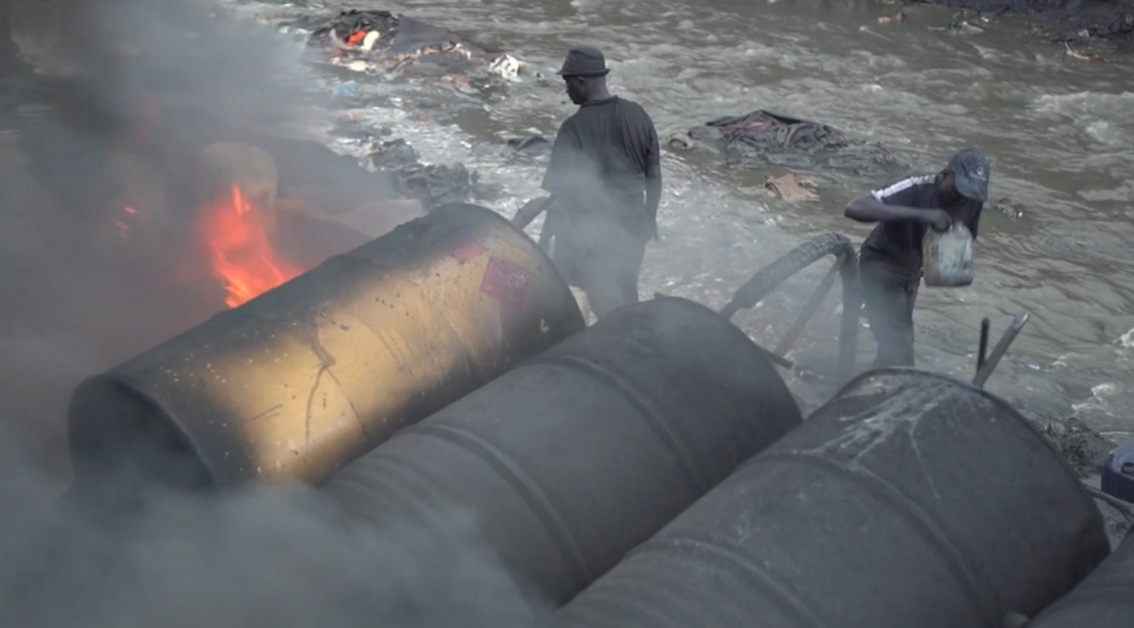Changaa on:
[Wikipedia]
[Google]
[Amazon]
 Changaa or Chang'aa is a traditional home-brewed spirit, popular in
Changaa or Chang'aa is a traditional home-brewed spirit, popular in
 Changaa or Chang'aa is a traditional home-brewed spirit, popular in
Changaa or Chang'aa is a traditional home-brewed spirit, popular in Kenya
)
, national_anthem = "Ee Mungu Nguvu Yetu"()
, image_map =
, map_caption =
, image_map2 =
, capital = Nairobi
, coordinates =
, largest_city = Nairobi
, ...
. It is made by fermentation and distillation from grains like millet
Millets () are a highly varied group of small-seeded grasses, widely grown around the world as cereal crops or grains for fodder and human food. Most species generally referred to as millets belong to the tribe Paniceae, but some millets al ...
, maize
Maize ( ; ''Zea mays'' subsp. ''mays'', from es, maíz after tnq, mahiz), also known as corn (North American and Australian English), is a cereal grain first domesticated by indigenous peoples in southern Mexico about 10,000 years ago. Th ...
and sorghum
''Sorghum'' () is a genus of about 25 species of flowering plants in the grass family (Poaceae). Some of these species are grown as cereals for human consumption and some in pastures for animals. One species is grown for grain, while many othe ...
, and is very potent.
Regulation
After being illegal in Kenya for many years, the Kenyan government legalised the traditional home-brewed spirit in 2010, in an effort to take business away from establishments where toxic chemicals are added to the brew to make it stronger. Under the new law, chang'aa must be manufactured, distributed and sold in glass bottles, and retailers must display health warning signs. Sale to individuals under age 18 is still prohibited, as is sale through automatic vending machines. Anyone making or selling adulterated chang'aa risks penalties of five million shillings, five years in jail, or both. Chang'aa is usually much cheaper and stronger than other alcoholic drinks, making it the beverage of choice for many.Production and distribution
Its production and distribution in urban slums has to some extent continued to be controlled in many cases by criminal gangs like theMungiki
Mungiki is a banned ethnic organisation in Kenya. The name (''mũngĩkĩ'', ) means "a united people" or "multitude" in the Kikuyu language. The religion, which apparently originated in the late 1980s, is secretive and bears some similarity to myst ...
who run protection cartels for illicit brewers. However, in the rest of the country production is still under traditional brewers. Illegally brewed chang'aa could be purchased for around US$
The United States dollar (symbol: $; code: USD; also abbreviated US$ or U.S. Dollar, to distinguish it from other dollar-denominated currencies; referred to as the dollar, U.S. dollar, American dollar, or colloquially buck) is the official ...
0.20 to $0.40 per glass.
Health issues
The drink is sometimes adulterated by adding substances likejet fuel
Jet fuel or aviation turbine fuel (ATF, also abbreviated avtur) is a type of aviation fuel designed for use in aircraft powered by gas-turbine engines. It is colorless to straw-colored in appearance. The most commonly used fuels for commercial a ...
, embalming fluid
Embalming chemicals are a variety of preservatives, sanitising and disinfectant agents, and additives used in modern embalming to temporarily prevent decomposition and restore a natural appearance for viewing a body after death. A mixture of the ...
or battery acid
Sulfuric acid (American spelling and the preferred IUPAC name) or sulphuric acid ( Commonwealth spelling), known in antiquity as oil of vitriol, is a mineral acid composed of the elements sulfur, oxygen and hydrogen, with the molecular f ...
, which has the effect of giving the beverage more 'kick'. Drinkers have suffered blindness or death due to methanol
Methanol (also called methyl alcohol and wood spirit, amongst other names) is an organic chemical and the simplest aliphatic alcohol, with the formula C H3 O H (a methyl group linked to a hydroxyl group, often abbreviated as MeOH). It is a ...
poisoning. The water used to make the drink in illegal breweries is also often below acceptable health standards and sometimes contaminated with sewage
Sewage (or domestic sewage, domestic wastewater, municipal wastewater) is a type of wastewater that is produced by a community of people. It is typically transported through a sewer system. Sewage consists of wastewater discharged from residenc ...
.
Origin of name
The name ''Chang'aa'' was adopted in the 1950s when Oyuga Muganda, an AP inKisumu
Kisumu ( ) is the List of cities and towns in Kenya by population, third-largest city in Kenya after the capital, Nairobi, and the coastal city of Mombasa (census 2019). It is the third-largest city after Kampala and Mwanza in the Lake Victor ...
, once narrated the story in the presence of Tom Omuga how ''Pelele'' (aka ''Woraj'') got its name as ''Chang'aa''.
Women from the Kano area of Kisumu used to ferry fresh milk in pots to sell to Kisumu residents. The colonial government had banned the sale of local liquor (''Pelele'') and so the women carrying milk also carried ''Pelele'' disguised as milk.
One day a white policeman who had been tipped off about the underground trafficking of ''Pelele'' stopped the women milk sellers on the road to inspect their pots of "milk". One of the pots had ''Pelele'' and not milk.
The policeman ordered all the pots lined on the roadside and asked "Maziwa ya nani?"
An interpreter repeated in Dholuo "Ma Chag ng'a?" (meaning "whose milk is this?").
So the policeman charged the women with transporting and selling ''Chang'aa''. That is allegedly how the name ''Chang'aa'' came about.
See also
*Waragi
Waragi (pronounced , also known as kasese) is a generic term in Uganda for domestic distilled beverages. Waragi is also given different names, depending on region of origin, the distillation process, or both. Waragi is known as a form of homemad ...
(in Uganda)
References
{{Portal, Kenya, Drink